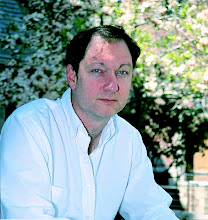New Op-ed: Does the Fear of Jail Actually Prevent Crime?
According to a brand-new and extensively covered study by the JFA Institute, a George Soros funded group, the U.S. prison system doesn’t deter crime and is "a costly and harmful failure.”
Prison is supposedly so useless that the U.S. prison population could be cut in half with no effect on crime.
This distrust of prison reducing crime is not new, but many have a hard time believing the simplest rule of economics: if you make something more costly, people do less of it. People accept that this principle applies to what we buy in grocery stores, but not to “bad” things that people might do.
Labels: op-ed







3 Comments:
Both a deterrent and a detergent:
It cleans the scum off the street and puts it where it can't cause trouble.
Hopefully one or two scumbags also reform, but that's a fringe benefit (if it occus at all).
Is anyone considering outsourcing prison over seas?
Mexico Brazil etc could probably do a good job cheaper than the US.
Bangladesh, India, China, the philipines could be cheaper still.
You miss the point entirely with this piece.
The bottom line is that people don't think they're going to get caught when they commit crimes.
You also ignore socio-economic factors that criminals have. If you are poor and have nothing to lose, any punishment put forth seams minimal to the conditions that you're currently in.
Also, what about drugs. I'm sure a crack addict has full mental capacity to weigh right and wrong and the risk assessment of going to jail prior to an assault to get more money for drugs. How about spending money on treatment and rehab programs instead of prisons?
It's a far stretch of the imagination to compare a professional athlete committing a foul or bean ball to a person desperate enough to kill someone or rob a bank.
Dear Lawryde:
These studies that find that punishment matters do indeed account for all the factors that you raise and more. Even crazy people do less of something the more difficult or costly that it is. But I will just mention that when I was chief economist at the US Sentencing Commission I read what must have seemed like a thousand transcripts from trials. It was amazing to see in case after case how the criminals took into account whether they might get hurt in their robbery or whether it would be difficult.
Post a Comment
Links to this post:
Create a Link
<< Home